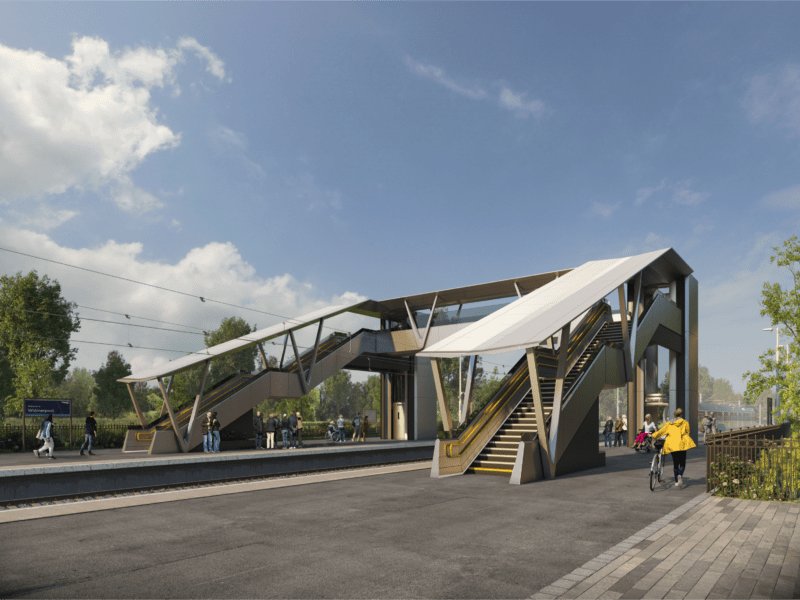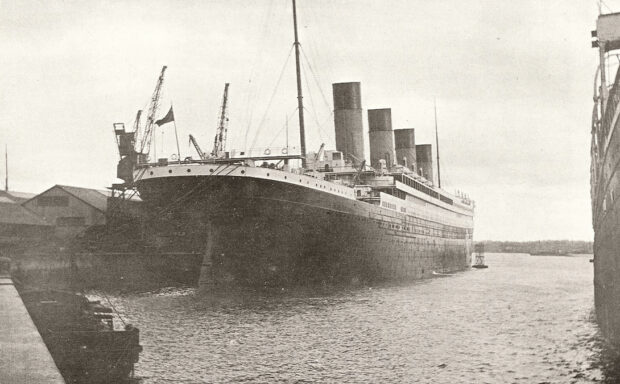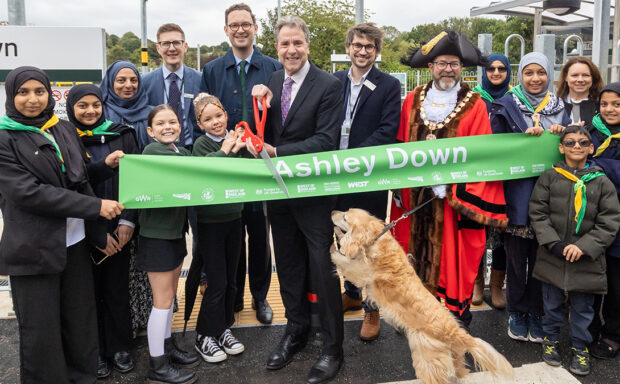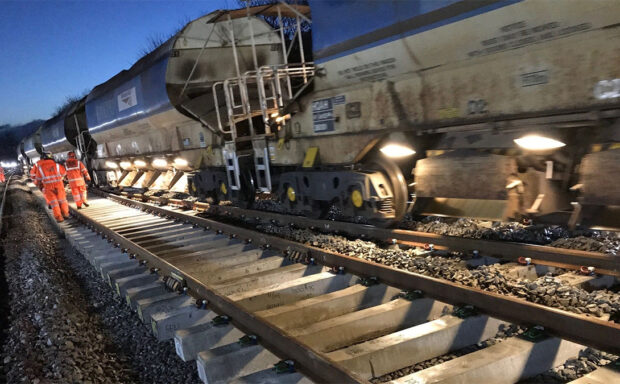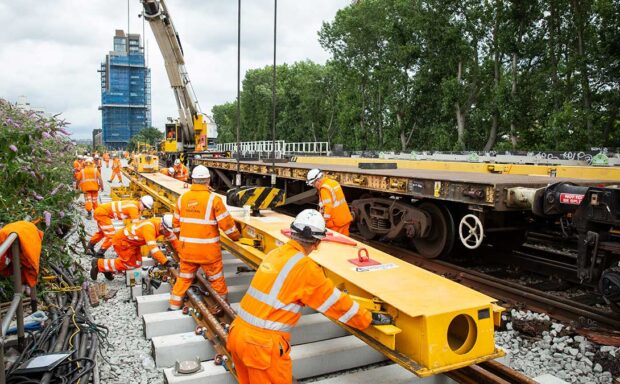A ‘flat pack bridge’ is our latest effort to improve your connections and experience of travelling by rail.
We’ve worked with the AVA consortium SMEs funded by Innovate UK and Network Rail to create the AVA footbridge – an elegant, customisable kit that’s manufactured offsite and will be available to our teams to use at stations across Britain.
It’s light yet robust with its stainless-steel frame and is simple to install. We can adjust the bridge design to make it fit at any station anywhere. This means it has the potential to connect communities previously unable to benefit from footbridges.
Access for All
It is not just the AVA footbridge that has been designed. They have also come up with custom AVA lifts that have a dual system to minimise downtime. This means the lifts are more likely to be in service more often.
Initiatives like these are an important part of our work on the Access for All Programme to provide an obstacle free, accessible route to and between platforms.
Ross Chipperfield, a Director at Quantum Infrastructure and AVA project manager, said accessibility was a vital element of the new bridge.
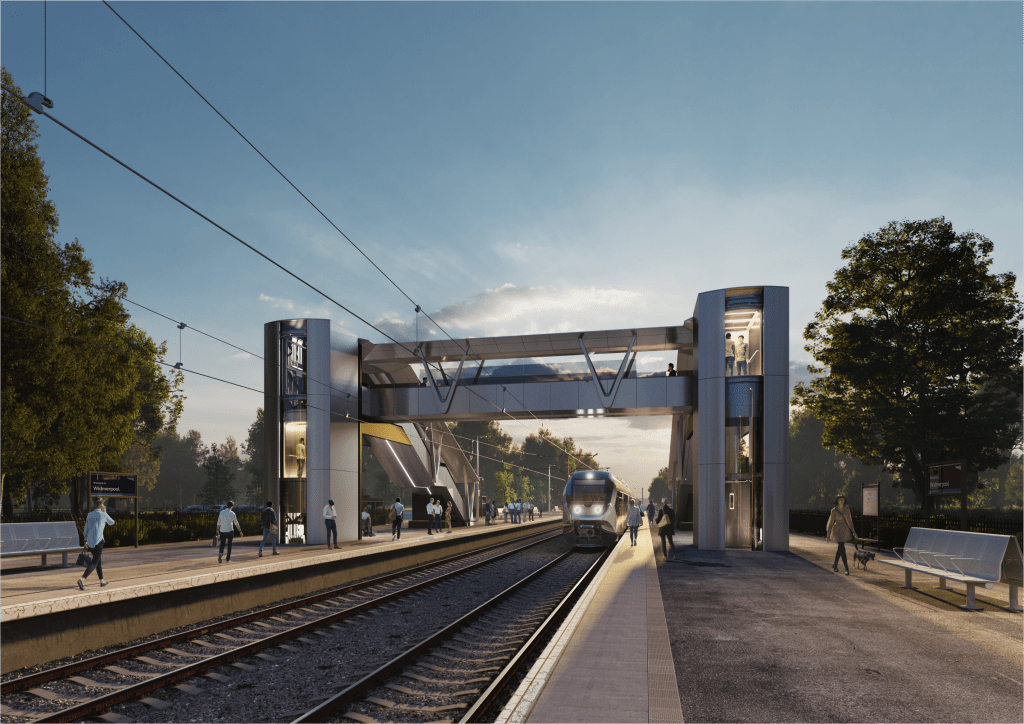
He said: “Not only should you be able to have lift access and not be made to feel like a second-rate citizen, you should be able to come the same way as a walking passenger. It could be a nice view that someone standing up and walking gets to see… Why wouldn’t someone in a wheelchair get to experience that as well? It’s really important to us, the equality of travel.”
Better still, the materials used make it more beautiful and sustainable, and easier to maintain than many modern bridges you’ll see across the railway.
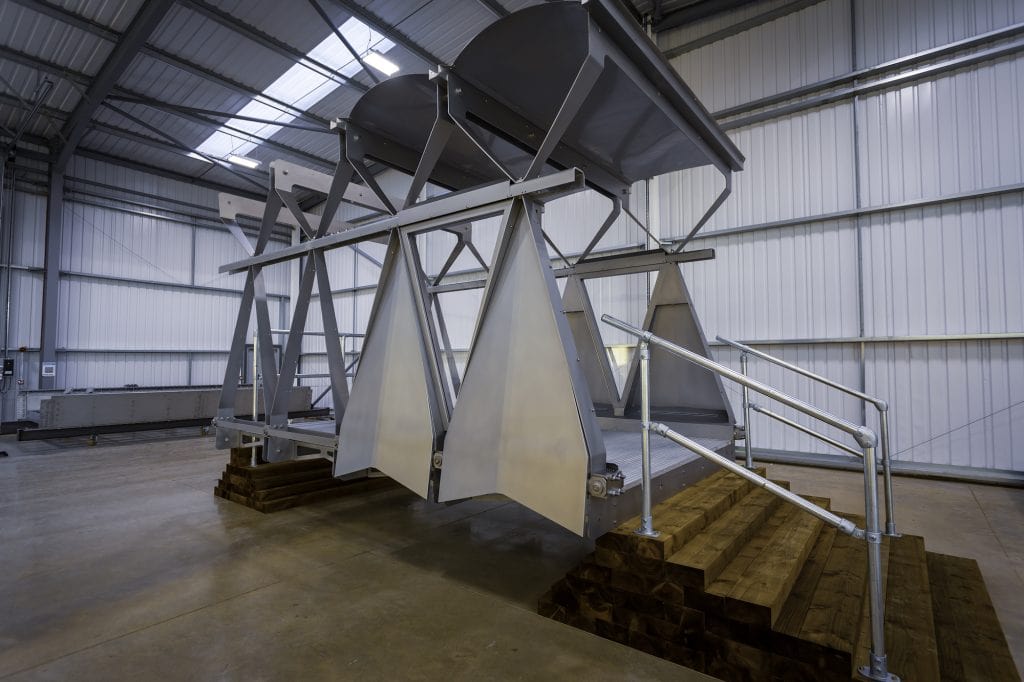
Ross said: “We used stainless steel, which is more expensive … but the reason it’s so much cheaper and better for the environment is our bridges don’t need to be painted. Traditional 1970s bridges and even bridges in the new catalogue [of bridge designs used by Network Rail] have got to be painted once every 30 years … Every time that’s painted, that’s roughly £1.2m [a time].
“We use a bead blast process to blast it – give it a beautiful aesthetic – but it doesn’t need to be treated after that. It’s vandalism-proof, rain-proof … It’s been used in the food industry for 40 years because they want machines to not rust …”
Greater value
The AVA bridge also ensures substantially better value for money, with each one potentially able to save us about £1.4m. It’s quicker to install than the typical footbridge and requires fewer railway line closures to trains – or line possessions – which usually cost us lots of money in compensation to train operators.
We’re aiming to be able to install an AVA bridge in just two 52-hour line possessions, cutting our time on site from 34 weeks to just 12. Overall, AVA enables us to shave 75% off the project time for a new footbridge because it’s simple and so much of the work has already been done.
That’s better for passengers, train operators and people who live close to the railway.
Read more:
Winning design to improve smaller stations
Rail Alphabet 2 launches at exhibition celebrating 1960s design icon
Better design across our railway
Access for All update – April 2021
The Architecture the Railways Built – Huddersfield station
The Architecture the Railways Built – Bristol Temple Meads
The Architecture the Railways Built – the birthplace of the modern railway
